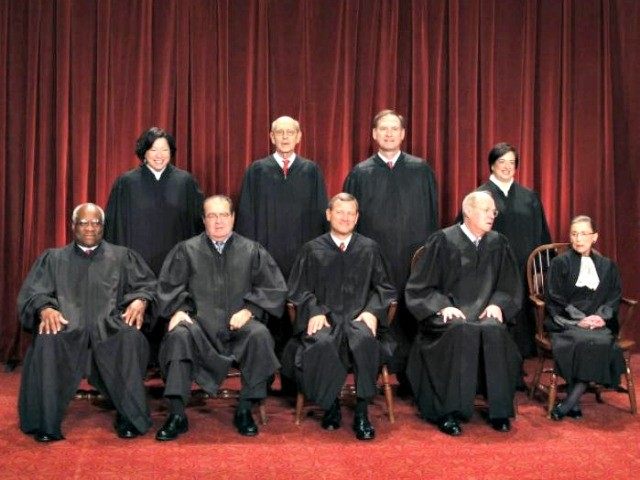America’s most famous institutions of higher education celebrate liberal justices on our nation’s highest court, but evidently see nothing worth celebrating when it comes to conservative justices’ accomplishments.
The Supreme Court currently has four liberal justices (Ruth Bader Ginsburg, Stephen Breyer, Sonia Sotomayor, and Elena Kagan), two moderates (John Roberts and Anthony Kennedy), and three conservatives (Antonin Scalia, Clarence Thomas, and Samuel Alito). The Ivy League includes eight universities: Brown, Columbia, Cornell, Dartmouth, Harvard, Princeton, University of Pennsylvania, and Yale.
Professor John McGinnis teaches constitutional law at Northwestern University and is widely regarded as a brilliant conservative legal scholar. McGinnis wrote a piece in the Wall Street Journal on August 14, pointing out that of “the fourteen honorary degrees bestowed by Ivy League institutions to living Supreme Court justices[,] twelve went to those on the left of the Court.”
Ginsburg—the leader of the Court’s liberal wing—has received honorary degrees from seven of the eight schools, all but Cornell (which should not be surprising, because Cornell does not award honorary degrees). There is an obvious disparity in that both Alito and Sotomayor received their bachelor’s degrees from Princeton, then their law degrees from Yale. Yet Alito, who joined the Court in 2006, has not been honored by either school, while Sotomayor, who joined in 2009, has received honorary degrees from both.
It is especially notable that Scalia—who is the longest-serving jurist on the Court, appointed by Ronald Reagan in 1986—has not been deemed worthy of academic recognition. Scalia is a renowned legal scholar who graduated from Harvard Law, spending most of his academic career as a professor at the University of Chicago’s elite law school. His published scholarship on constitutional interpretation has had an enormous impact on the law for decades.
Thomas—a graduate of Yale Law—is also a notable omission. An African-American who grew up in abject poverty—raised first by his mother and later by his grandparents when his mother sent him to them in the hope that they could provide him a better life—Thomas’s moving personal story is captured in his acclaimed autobiography, My Grandfather’s Son. That only the second African-American ever to sit on the Supreme Court could rise from such humble beginnings to serve on a court that long ago had declared that he should not even be regarded as a full person would strike many as a story worth honoring. Thomas is also the Court’s most dedicated originalist: the judicial philosophy that the words of any law—including any provision in the Constitution—should only be interpreted according to the meaning that the American people understood those words to mean when they were adopted.
This disparate treatment of conservatives versus liberals could lead some to speculate that the kind of diversity celebrated by the Ivy League does not include diversity in how people think or contribute to American life.

COMMENTS
Please let us know if you're having issues with commenting.